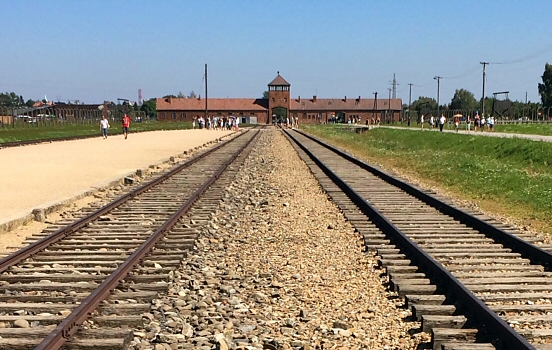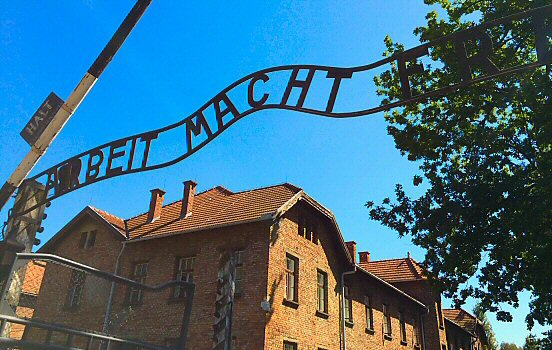I didn’t plan on being in Kraków again so soon. A few months ago, I wandered its springtime streets, charming and full of promise. Now, under the generous summer sun, the city looks downright happy. But even the best‑looking setting can wear a twisted past like a scar.
My visit this time wasn’t just for another chat with the old dragon (yes, he still breathes fire). West of the city lies that name we all know, whispered, the scar on Europe you keep at a distance until you don’t.
Auschwitz.
That iron gate you see in every photograph, the one that greets you with the words “Arbeit macht frei”, still sits. I stood there, on the threshold of what was once a death machine. The words are mocking. They mock logic, history and humanity.
 Auschwitz-Birkenau.
Auschwitz-Birkenau.
Inside, the air doesn’t smell like death. That would be too easy. The barracks are silent testimonies. The souls gone, but the architecture remains. Walking past the silent watchtowers. Seeing the railway tracks that were leading into oblivion.
I’ve seen similar in my past, Dachau, other places where evil didn’t bother to hide. But here? It’s different. It’s bigger. It’s real. There’s a heaviness that presses on your chest.
 Auschwitz gates.
Auschwitz gates.
Auschwitz remains as a scar. This visit is not about tourist souvenirs or Instagram perfection. It’s about what mankind is capable of when it forgets its humanity. It’s about witnessing, so we don’t forget. So we don’t repeat.

2 comments
Leave a reply